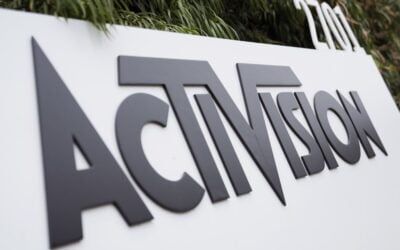Distressed Business Attorney
The sale or acquisition of a distressed business differs considerably from other business sales because the company being sold may currently be involved in bankruptcy proceedings or negotiating with creditors to restructure their debts outside of bankruptcy. While the transactions are often more complex than a typical business sale, both parties have an incentive to complete the sale quickly because the distressed sellers often have few other viable options for continuing operations and the buyers believe it can be acquired on favorable terms.
Private Sales
Deciding whether to purchase a distressed business before it files for bankruptcy can offer advantages and disadvantages to both buyers and sellers. Those shared benefits include avoiding the costs and delays associated with the bankruptcy process and allowing the parties to control the sale’s timing and price.
One of the biggest reasons a buyer may want to purchase a struggling company prior to bankruptcy is that the purchase price is often lower than the value of its assets. Additionally, purchasing the company while it is still solvent offers the buyer additional leverage in negotiating the sale because the seller usually wants to sell quickly and cannot afford to engage in prolonged negotiations. However, conducting the sale under tight time constraints gives the buyer limited time to perform due diligence and may subject it to successor liability if steps are not taken to minimize that risk.
Sellers often want to conclude the sale prior to filing for bankruptcy because it usually results in a higher purchase price for the assets of the distressed company and allows for at least some employees to keep their jobs. Additionally, the sale may allow the seller to satisfy all of its outstanding obligations without resorting to bankruptcy by negotiating a good purchase price and properly structuring the deal. The disadvantages for the seller include a sale price that may be lower than the value of the company’s assets and little time to negotiate the best terms.
Bankruptcy Sales
Nearly all sales of distressed businesses that have filed for bankruptcy involve companies involved in Chapter 11 proceedings. Because the transactions take place under the supervision of the Bankruptcy Court, they generally take longer than private sales but offer greater protection to buyers because the sale is typically shielded from later challenges by creditors and other parties. The court may allow the buyer to purchase the company free and clear of all known creditor claims and liens and may approve the assignment of contracts and leases to the buyer, regardless of whether the other party to the agreement has consented.
Unfortunately, the sale of a business in bankruptcy proceedings often takes months and, because bankruptcy filings are public documents, the publicity surrounding the bankruptcy filing can do further damage to the already distressed business. Additionally, a party attempting to buy a distressed business may be outbid because the Bankruptcy Court will require proof that the business was appropriately marketed and that the sellers undertake a competitive bidding process. Creditors will have increased leverage in a bankruptcy proceeding and the committee of unsecured creditors may attempt to seek out another buyer willing to pay more for the company. Finally, while a sale in bankruptcy does provide the buyer with some protections, the buyer still must perform due diligence because the seller may not furnish accurate financial information and there are usually no warranties.
Receivership Sales
Most business loan documents allow a secured lender to seek the appointment of a receiver to take control of the collateral should the borrower default. Most receiverships are commenced to preserve the collateral of the lender pending foreclosure, but there are times when the lender would rather have the receiver sell the business.
The receiver has a number of options for selling the business, including through a formal auction process, hiring a broker to market the business,and selling the business through personal contacts. The purchase agreement is usually subject to the approval of the court overseeing the receivership and creditors typically receive notice of the proposed sale and are offered the opportunity to object.
The primary advantage of a receiver’s sale is that the sales process can occur fairly quickly and the receiver is allowed to conduct the sale in a manner that is best suited for a specific asset or industry without undertaking a competitive bidding process. However, receivership usually takes place in state court and the order of sale may not bind creditors that were not part of the proceeding and, under some circumstances, creditors may still pursue claims against the buyer. Additionally, the parties may need the consent of secured creditors to relieve their liens and some contracts may not be assigned without getting the consent of the counterparties.
A Lawyer from Thomas H. Curran Associates Can Help
A skilled business attorney from the law firm of Thomas H. Curran Associates can assist clients who are involved in the acquisition or sale of a distressed business, including those currently involved in bankruptcy proceedings. Our lawyers have extensive experience representing distressed companies, bankruptcy debtors, lenders, creditors, and investors and are uniquely positioned to provide clients with guidance on the unique legal issues that inevitably arise during the sale of a distressed company.
Transactional Law Practice Results
Recent successful cases handled by the attorneys Thomas H. Curran Associates. Find more here »
Thomas H. Curran Associates engaged to represent client in connection with Series A investment in a cannabis grower and dispensary
As part of the recent legalization of cannabis in Massachusetts, one of the Firm’s long-time litigation and bankruptcy clients engaged...
Thomas H. Curran Associates engaged by Japanese publicly traded REIT in connection with a purchase and lease transaction
Thomas H. Curran Associates was engaged by a Japanese publicly traded real estate investment trust (REIT) to represent it in connection...
Thomas H. Curran Associates represents metro-Boston retail landlord client in connection with a second mortgage financing transaction
Thomas H. Curran Associates was engaged to represent its metro-Boston retail landlord client in connection with a second mortgage...
Workout and enforcement of large portfolio of non-performing commercial loans for private equity fund client
Thomas H. Curran Associates was engaged by its private equity fund client to handle workout and enforcement of a large portfolio of...
Distressed acquisitions case for private investment fund
Thomas H. Curran Associates advised its client, a private investment fund, on the acquisition of a non-performing commercial loan from a...
Thomas H. Curran Associates engaged to represent client in connection with Series A investment in a cannabis grower and dispensary
As part of the recent legalization of cannabis in Massachusetts, one of the Firm’s long-time litigation and bankruptcy clients engaged...
Thomas H. Curran Associates engaged by Japanese publicly traded REIT in connection with a purchase and lease transaction
Thomas H. Curran Associates was engaged by a Japanese publicly traded real estate investment trust (REIT) to represent it in connection...
Thomas H. Curran Associates represents metro-Boston retail landlord client in connection with a second mortgage financing transaction
Thomas H. Curran Associates was engaged to represent its metro-Boston retail landlord client in connection with a second mortgage...
Workout and enforcement of large portfolio of non-performing commercial loans for private equity fund client
Thomas H. Curran Associates was engaged by its private equity fund client to handle workout and enforcement of a large portfolio of...
Thomas H. Curran Associates engaged to represent client in connection with Series A investment in a cannabis grower and dispensary
As part of the recent legalization of cannabis in Massachusetts, one of the Firm’s long-time litigation and bankruptcy clients engaged...
Thomas H. Curran Associates engaged by Japanese publicly traded REIT in connection with a purchase and lease transaction
Thomas H. Curran Associates was engaged by a Japanese publicly traded real estate investment trust (REIT) to represent it in connection...
Thomas H. Curran Associates represents metro-Boston retail landlord client in connection with a second mortgage financing transaction
Thomas H. Curran Associates was engaged to represent its metro-Boston retail landlord client in connection with a second mortgage...
Transactional Law Areas of Expertise
Transactional Law News
The FTC’s case against Microsoft’s Activision acquisition is not going well | Vox
Microsoft and Activision Blizzard are overcoming hurdles to their $69 billion dollar merger. If the merger goes through, Microsoft will...
Delaware bankruptcy judge grants motion to keep FTX customer list secret | Jurist
Bankruptcy proceedings against FTX began in winter of 2022 following a failure of the company to pay investors and allegations of fraud....
Judge denies Sam Bankman-Fried’s motion to dismiss charges | CNN Business
Following last year’s collapse into bankruptcy, FTX pleaded not guilty to as many as 13 counts of criminal fraud. In light of criminal...
Construction in Boston resumes under new COVID-19 safety measures
The City of Boston has allowed construction activities to restart after a nine-week forced shutdown stemming from the COVID-19 pandemic....
Real estate transfer tax proposal passed by Boston City Council
On Wednesday December 11, 2019, the Boston City Council voted Wednesday to approve a controversial new transfer tax to the state...
Enforceability of “material adverse effect” clauses under Delaware law: Practical Lessons from Akorn
The Delaware Court of Chancery’s October 1, 2018 decision in Akorn Inc. v. Fresenius KABI AG (“Akorn”) marked the first time that any...
The FTC’s case against Microsoft’s Activision acquisition is not going well | Vox
Microsoft and Activision Blizzard are overcoming hurdles to their $69 billion dollar merger. If the merger goes through, Microsoft will...
Delaware bankruptcy judge grants motion to keep FTX customer list secret | Jurist
Bankruptcy proceedings against FTX began in winter of 2022 following a failure of the company to pay investors and allegations of fraud....
Judge denies Sam Bankman-Fried’s motion to dismiss charges | CNN Business
Following last year’s collapse into bankruptcy, FTX pleaded not guilty to as many as 13 counts of criminal fraud. In light of criminal...
Construction in Boston resumes under new COVID-19 safety measures
The City of Boston has allowed construction activities to restart after a nine-week forced shutdown stemming from the COVID-19 pandemic....
The FTC’s case against Microsoft’s Activision acquisition is not going well | Vox
Microsoft and Activision Blizzard are overcoming hurdles to their $69 billion dollar merger. If the merger goes through, Microsoft will...
Delaware bankruptcy judge grants motion to keep FTX customer list secret | Jurist
Bankruptcy proceedings against FTX began in winter of 2022 following a failure of the company to pay investors and allegations of fraud....
Judge denies Sam Bankman-Fried’s motion to dismiss charges | CNN Business
Following last year’s collapse into bankruptcy, FTX pleaded not guilty to as many as 13 counts of criminal fraud. In light of criminal...
Contact Us
Are You In Need of Legal Counsel for a Business Transaction, Commercial Litigation, or Bankruptcy Matter?
Contact our team today.
Call us at (617) 207-8670 or use the quick contact form below.
Austin Office
111 Congress Avenue
Suite 500
Austin, TX 78701
Boston Office
Ten Post Office Square
Suite 800 South
Boston, MA 02109
New York Office
1740 Broadway
15th Floor
New York, NY 10019
London Office
The Leadenhall Building
Level 30
122 Leadenhall Street
London EC3V 4AB
Tags: distressed business attorney distressed business lawyer distressed business law firm






